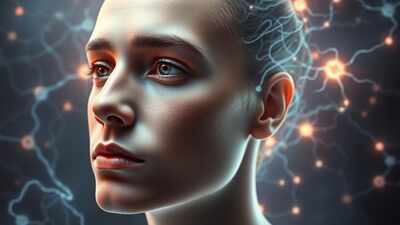For centuries, the nature of consciousness was a mystery left to philosophers, but today, scientists from various fields, including biology, neuroscience, and physics, are exploring a groundbreaking theory: could human consciousness actually alter reality?
One emerging theory suggests that consciousness might not be confined to the brain alone. Dr. William B. Miller, an evolutionary biologist, proposes that our 37 trillion cells might each contain a spark of awareness. These cells don’t just follow genetic instructions but may also respond, adapt, and even “decide,” hinting at cellular-level consciousness. This idea is gaining support, particularly with the rise of “xenobots” – lab-grown organisms that exhibit self-directed behavior, possibly influenced by an internal intelligence.
If consciousness exists at a cellular level, it could reshape how we understand biology, suggesting that our physical processes are influenced not just by genes, but by some deeper, self-directed force. This could be a key factor in proving whether consciousness alters reality from the inside out.
In addition to this, some researchers are exploring consciousness through quantum mechanics. Scientists studying the microtubules in brain cells propose that these tiny structures might operate at a quantum level. Research involving rats under anesthesia has shown that when microtubules are chemically stabilized, the animals stay conscious longer, raising the possibility that our awareness could be linked to subatomic phenomena. If proven, this would revolutionize how we think about consciousness and reality.
Psychedelic research also plays a role in this conversation. At research centers like Johns Hopkins, volunteers under the influence of substances like DMT or LSD often report feeling a deep connection to a “higher reality.” They describe experiences of timelessness, vast universal connections, and even encounters with intelligent entities. These reports challenge the conventional understanding of consciousness as simply a byproduct of brain chemistry, suggesting that under certain conditions, consciousness might tap into a deeper, fundamental layer of existence.
What if consciousness doesn’t just observe reality, but molds it? If these theories hold, we might be unraveling the idea that our awareness isn’t a passive bystander, but an active force, quietly reshaping the world we think we know. It’s a whisper from the edges of science, hinting that everything is far more intertwined than we ever imagined.












More Stories
What carved this long, winding line on Mars? NASA has the answer |
Who is Tejpaul Bhatia? Indian-origin executive takes over as Axiom Space CEO ahead of historic Indian astronaut mission
How selfie seekers are contributing to the rise in shark attacks |